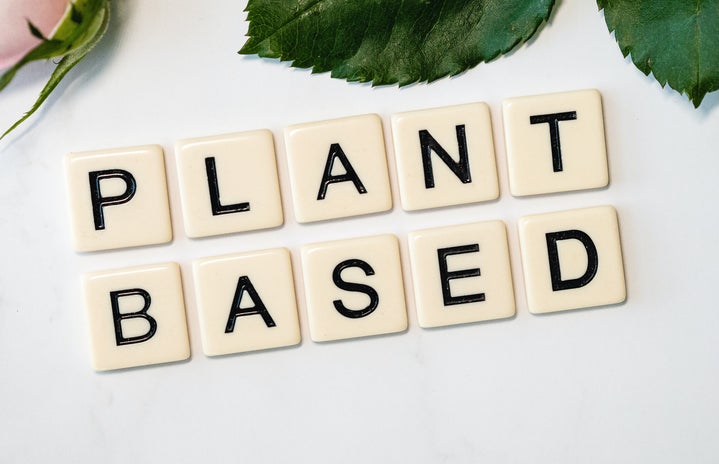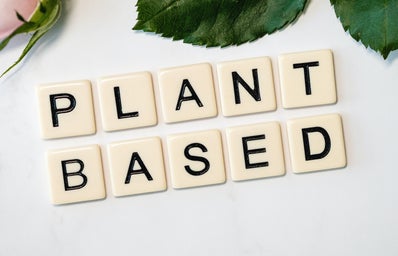At 15, I watched Forks Over Knives (a documentary that is notorious for “converting” people to veganism) and decided I could never eat meat again. After that, I quit consuming animal products completely; overnight, I cut out eggs and all kinds of meat and dairy from my diet. Feeling confident in my choice, but unsure of how to navigate life as a new vegan, I looked to vegan Youtubers for meal inspiration and guidance. Looking back, I see that this is where I went wrong.
Unfortunately, I stumbled upon the Youtube channels of vegans like Freelee the Banana Girl or FullyRawKristina who promoted “high carb-low fat” diets and I became convinced that I had to adopt this kind of extreme diet, too. Though I initially felt compelled to go vegan for the sake of animal rights, the more (what I thought was) vegan content I watched, the more I only began to care about what I ate. I quickly became unhealthily concerned with maintaining the “perfect vegan diet.”
Since I had been so accustomed to hearing about how terrible carbs were for you (or that carbs make you gain weight) growing up, seeing healthy-looking people promote a diet that actually encouraged consumption of carbs seemed revolutionary. I felt like I could eat whatever I wanted … so long as it was plant-based and nearly fat-free. I thought I had found food freedom with this new diet, but in reality, I was just developing new and dangerous kinds of food aversions.
Over the next two years, I tried out different kinds of diets within veganism which all felt too limiting and unsustainable. Even though it wasn’t veganism itself that had failed me, I began to associate veganism with restriction and my poor relationship with food. These food rules were starting to impede on my life; the thought of eating even popular “health foods” like avocados made me feel anxious. Finally, the summer before my senior year of high school, I decided to take control back and sort of reset my diet. I thought I needed to let go of my food restrictions entirely to repair my relationship with food, so I reluctantly began incorporating animal products back into my diet.
At first, I was terrified and disgusted at the thought of eating foods I had long abhorred. I also felt immense guilt in making this decision because it felt selfish. I was inspired to go vegan because I cared about the wellbeing of animals which, in turn, made me a vocal activist for animal rights the entire time I was vegan. Not only was I failing animals who my choice would harm, but I was also failing my peers who I knew looked to me as an example. In labeling myself as vegan and openly discussing my diet with others, I had become living proof that veganism could actually be sustainable and feasible, even for a high school student living in a city where veganism wasn’t the most accessible or celebrated. I felt like I was letting people down, and I was well aware that the news was going to come as a shock to everyone I told. Ultimately though, letting go of dietary restrictions felt like the best option for me. I decided it was important to prioritize my health, regardless of the backlash I would face.
That summer of trying new foods again was *terrifying* to say the least. I started out with dairy, which just made me feel sick, and worked my way up to fish several months later. Seafood is where I drew the line, though, as I simply couldn’t bring myself to eat other kinds of meat. I also felt like abstaining from chicken and beef (and other meat) was a way I could maintain at least some degree of environmental consciousness in this new lifestyle.
For the entirety of my time as a vegan, I was constantly ridiculed by people who believed that veganism was an unrealistic and unhealthy lifestyle. Of course, I always had a million and one counter-arguments to defend veganism when people offered me any sort of objection to it at the height of my vegan journey. But, when I recognized how unhealthy my diet had become, I began to think that those people were right after all. I blamed veganism for creating my disordered eating habits and again felt liberated by rejecting veganism.
Veganism (in its most basic form) is actually an admirable philosophy, though; it seeks to eliminate animal exploitation and suffering as much as possible and “promotes the development and use of animal-free alternatives for the benefit of animals, humans and the environment.” Consequently, I now see that veganism was not to blame for my corrupted relationship with food. In reality, I believe I already had a negative view of food prior to adopting my vegan diet and veganism just served as a gateway for me to fall into more restrictive dieting habits. Though I undoubtedly had strong ethical convictions which enabled me to stick with my vegan diet as long as I had, I was simultaneously using veganism as an excuse to avoid certain foods. When I discovered sub-diets of veganism that could enable me to restrict my diet even further, I was ecstatic, because they only justified and further perpetuated my toxic mindset.
A few years have passed since I stopped adhering to a vegan diet, and I have thankfully been able to overcome a lot of food anxieties I once had thanks to the help and support of my family and friends. Now, I would say plant-based foods make up the majority of my diet and I abstain from eating meat, which technically makes me vegetarian. The biggest difference in my eating habits now as compared to when I called myself vegan is that I do not place explicit food restrictions on myself anymore. In this way, I have finally felt true freedom. I do not eat meat still solely because I do not see it as a necessity. Luckily, the increase in vegan options at the dining hall this year has made it significantly easier to be vegetarian or vegan as a student living on campus.
I would like to go fully vegan again one day and still firmly believe that it is the best diet/lifestyle one can adopt for the sake of animals, the planet, and one’s own health. Yet, I now see that veganism is not practical for everyone. Ironically, once upon a time, I hated that statement. I genuinely believed that anybody could go vegan if they worked hard enough for it and I couldn’t comprehend why people would object to being vegan. I look back at my perspective then and think it was quite privileged. Though I was certainly preachy at one point in time, I am much more grounded these days. I now advocate for people “doing what they can” to minimise their contribution to animal cruelty and environmental degradation. For some people, that means being completely vegan, avoiding automotive transportation, and living waste-free; for others, it means having a few meatless meals a week and carpooling when convenient. I’ve realized that one’s efforts do not have to be dramatic in order to have a positive effect and that it is just as important to take care of oneself as it is to care for others.
Follow HCND on Twitter, like us on Facebook, Pin with us and show our Instagram some love!



